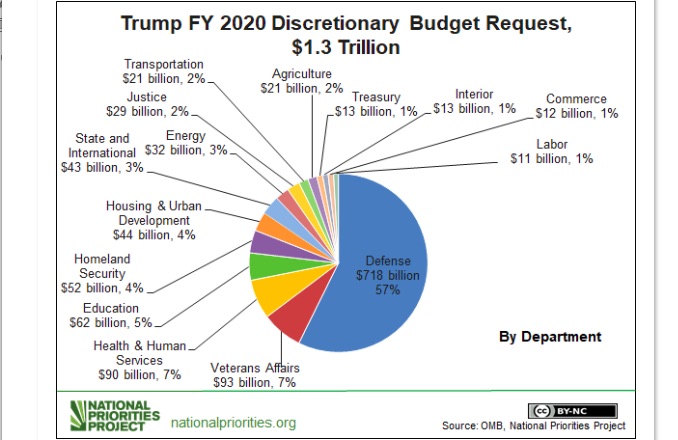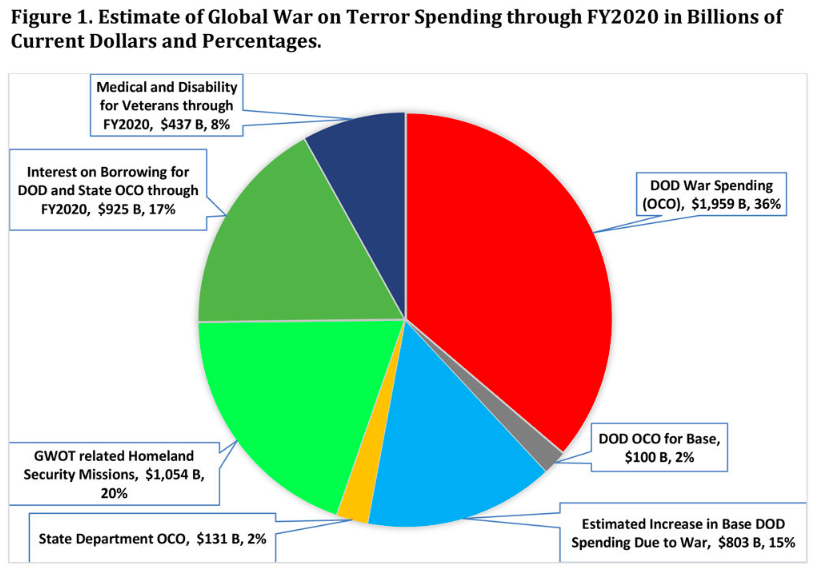DISARMAMENT & SECURITY .
An article from Democracy Now (licensed under a Creative Commons Attribution-Noncommercial-No Derivative Works 3.0 United States License).
Over the weekend, Pope Francis visited Hiroshima and Nagasaki, where the United States dropped the first atomic bombs in 1945, killing more than 200,000 people. Pope Francis said, “A world without nuclear weapons is possible and necessary.” The leader of the Cathoilc Church met with survivors of the Hiroshima and Nagasaki bombings and declared the possession of nuclear weapons to be immoral. The Pope’s visit comes as a group of seven Catholic peace activists are awaiting sentencing for breaking into the Kings Bay Naval Submarine Base in Georgia on April 4, 2018. The activists, known as the Kings Bay Plowshares 7, were recently convicted of three felony counts and a misdemeanor charge for entering the base armed with hammers, crime scene tape and baby bottles containing their own blood.

Video of interview
We speak with Martha Hennessy, one of the Kings Bay Plowshares 7. She is the granddaughter of Dorothy Day, the founder of the Catholic Worker movement. We are also joined by Pentagon Papers whistleblower Daniel Ellsberg. His most recent book is titled, “The Doomsday Machine: Confessions of a Nuclear War Planner.” Daniel Ellsberg was blocked from testifying in the recent trial of the Kings Bay Plowshares 7.
Transcript
This is a rush transcript. Copy may not be in its final form.
AMY GOODMAN: This is Democracy Now!. I’m Amy Goodman. “A world without nuclear weapons is possible and necessary.” Those were the words of Pope Francis this weekend as he visited Hiroshima and Nagasaki where the U.S. dropped the first atomic bombs in the world.—it was 1945—killing over 200,000 people. Pope Francis met with survivors of the Hiroshima and Nagasaki bombings and declared the possession of nuclear weapons to be immoral. In Hiroshima, Pope Francis spoke at the city’s Peace Memorial Park.
POPE FRANCIS: [translated] The use of atomic energy for the purpose of war is today more than ever a crime not only against the dignity of human beings, but against any possible future for our common home. The use of atomic energy for the purpose of war is immoral, just as the possessing of nuclear weapons is immoral, as I already said two years ago. We will be judged by this. Future generations will rise to condemn our failure if we spoke of peace but did not act to bring it about among the peoples of the earth. How can we speak of peace even as we build terrifying new weapons of war? How can we speak of peace even as we justify illegitimate actions by speeches filled with discrimination and hate?
AMY GOODMAN: The Pope’s visit to Hiroshima and Nagasaki comes as a group of seven Catholic peace activists are awaiting sentencing for breaking into the Kings Bay Naval Submarine Base in Georgia. It was April 4th, 2018. The activists, known as the Kings Bay Plowshares 7, who broke in on the 50th anniversary of the assassination of Dr. Martin Luther King, were recently convicted of three felony counts and a misdemeanor charge for entering the base armed with hammers, crime scene tape and baby bottles containing their own blood. They also carried an indictment charging the U.S. government with crimes against peace. The Kings Bay Naval Base is home to at least six nuclear ballistic missile submarines, each of which carries 20 Trident thermonuclear weapons. The activists said they were following the prophet Isaiah’s command to “beat swords into plowshares.”
We are joined now by two guests. Martha Hennessy is with us in New York, one of the Kings Bay Plowshares 7, granddaughter of Dorothy Day, the founder of the Catholic Worker Movement. And joining us from Berkeley, California, Pentagon paper whistleblower Daniel Ellsberg, his most recent book, The Doomsday Machine: Confessions of a Nuclear War Planner. Dan Ellsberg was blocked from testifying in the recent trial of the Kings Bay Plowshares 7. We welcome you both to Democracy Now! Martha, can you respond to Pope Francis going to Hiroshima, Nagasaki and saying that nuclear weapons are immoral?
MARTHA HENNESSY: Thank you, Amy. It’s good to be here. I think that we have before us a remarkable Pope, and he is certainly exhausting himself with this work of peacemaking and global solidarity-building. He is unequivocally speaking out against nuclear weapons. He does support the Treaty on the Prohibition of Nuclear Weapons. My heart rejoices to hear his words and to see him. He is very purposefully going to places that—places of sin and sorrow and grief and pain. He calls it a sacramental act to go to the sites. I feel complete affirmation in what he is trying to do with regards to our own action of walking onto the Naval Submarine Base in Kings Bay.
AMY GOODMAN: Has he weighed in on your trial or your sentencing?
MARTHA HENNESSY: I don’t think so. Not publicly, verbally, but he knows what is happening.
AMY GOODMAN: So describe what you did very briefly. You have been on before and described it. But also the sentence that you face. You were found guilty.
MARTHA HENNESSY: Yes, we were convicted, found guilty on all counts, October 24th.
AMY GOODMAN: And those counts were?
MARTHA HENNESSY: Conspiracy, depredation of governmental property, destruction of Naval property and trespass. And we are awaiting sentencing. We are facing—the initial threat was 20 years in prison, and I believe that the prosecution is now calling for 18 to 24 months. The judge has a reputation of ruling perhaps in the middle of the road. But I expect that I will receive a minimum of one year in federal prison.
AMY GOODMAN: I wanted to go back to Pope Francis Sunday holding a holy mass for over 30,000 Catholics at the Nagasaki Stadium in Japan.
POPE FRANCIS: [translated] In the belief that a world without nuclear weapons is possible and necessary, I ask political leaders not to forget that these do not defend us from threats to national and international security of our time. We need to consider the catastrophic impact of their use from a humanitarian and environmental point of view, renouncing to strengthen a climate of fear, mistrust and hostility fueled by nuclear doctrines.
No one can be indifferent to the pain of millions of men and women who still today continue to affect our consciences. No one can be deaf to the cry of the brother who calls from his womb. No one can be blind to the ruins of a culture incapable of dialogue.
(Continued in right column)
Can we abolish all nuclear weapons?
(Continued from left column)
AMY GOODMAN: That’s Pope Francis this weekend in Nagasaki, Japan. On August 9th, 1945, the U.S. dropped the second U.S. atomic bomb in the world on Nagasaki. Three days before, August 6, 1945, they dropped the first on Hiroshima. As you protest nuclear weapons, Martha Hennessy, at the Kings Bay Naval Base, you left a copy of Daniel Ellsberg’s book The Doomsday Machine on the site of your action. Why?
MARTHA HENNESSY: Daniel Ellsberg has brought us such critical information. The author of the Pentagon Papers releasing the scandal and the trauma of what the Vietnam War was and the other half of his story laid buried for many years regarding the nuclear arsenal. He was an insider who had to do research on understanding what the nuclear chain of command was for pressing the button, and he found out it was rather chaotic. It was unclear to the president. There were many people who actually had the capacity to press the nuclear button. And we felt the necessity of sharing his book and we wanted the people working at the base to read the book and to understand the history here.
AMY GOODMAN: Well, Dan Ellsberg is joining us from the University of California, Berkeley, who wrote The Doomsday Machine: Confessions of a Nuclear War Planner. Can you respond to this historic trip of Pope Francis to Hiroshima, Nagasaki, calling nuclear weapons illegal? This was your world. This was your work, Dan Ellsberg, as a high-level Pentagon and RAND Corporation official. The Plowshares 7 left your book at the site at Kings Bay. You attempted to testify at their trial. You were blocked. What would you have said?
DANIEL ELLSBERG: I believe that actions like theirs are necessary to moving this world away from nuclear weapons, as the Pope has called for. Many other approaches have been tried in the last 50 years and they have essentially failed. There is a major reason that runs through that history, and that is that we are, on the one hand, obliged by treaty, the highest law of the land, a ratified treaty, the Non-Proliferation Treaty, Article VI, to move in good-faith negotiations—in particular with what was in the Soviet Union, now Russia, but with all nuclear weapons states—for the effective elimination of all nuclear weapons. The U.S. has not considered negotiating for that goal for one minute of that half century. There has never been a minute of good faith, of intent to carry out Article Six.
So when the Pope Francis now, yesterday, makes this—puts—urges the same goal on the U.S. and all other countries, nuclear weapons states, it might seem redundant but it isn’t. He is saying that this should be taken seriously and he could not be more right. And of course, he’s a powerful voice in the world. I hope that—he has obviously undergone a considerable education on this, as have the people in Plowshares movement. And if he can pass that requirement on and its urgency to the bishops throughout the world, it will I am sure create conditions in which our own representatives will call on our executive branch at last to carry out what they are obliged to do in the treaty and what they have never done, and that is to negotiate seriously moving toward the elimination of nuclear weapons, a verifiable mutual elimination of nuclear weapons.
AMY GOODMAN: Martha, The New Yorker Magazine wrote a piece. The headline was The Pope and Catholic Radicals Come Together Against Nuclear Weapons.
MARTHA HENNESSY: Pretty significant. I would like to believe that Dorothy Day herself, my grandmother, very much influenced the U.S. Catholic Church in terms of holding on to the concept of peace and letting the U.S. bishops know how she felt about war. She opposed every war that occurred in her lifetime. It’s grand to see the Pope speaking out now. He is a Pope after the heart of Dorothy Day.
We can’t express our gratitude to people enough, to people like Dan Ellsberg and the many of those who have come before us—the Berrigan Brothers—all in their efforts—the Pope has said it’s not enough to simply speak out against nuclear weapons; we must act. We must walk. We walked onto that base. We need to raise a voice very clearly and even be willing to put our bodies on the line to help the world to understand that the malevolence, the secrecy, the lack of democracy from beginning to end with this nuclear arsenal, the production, the maintaining, the threat of using—it’s the greatest evil in the world that any of us can face in our lifetimes.
AMY GOODMAN: One of your sister protesters, Liz McAlister, the widow of Philip Berrigan, was one of the Plowshares 7. Last week, she just celebrated her 80th birthday. She, too, faces these charges and was in prison for a year and a half as she awaited the trial. Dan, what would you have said to the jury?
DANIEL ELLSBERG: What did I expect of the jury?
AMY GOODMAN: What would you have said? And why were you blocked?
DANIEL ELLSBERG: The judge refused to allow a defense of necessity or justification, a very old principle in English common law and American common law that an act under which under some circumstances or many circumstances would be illegal, like blocking a roadway, perhaps stealing a life preserver to throw it to somebody who was drowning, taking it from a nearby boat—an act like that that is meant as necessary to prevent an imminent greater evil, the death of someone, various things, would be legal. Not merely extenuating circumstances in a sense, but would actually be legal because it was the right thing to do under these circumstances. I am convinced from my own experience that that’s true of the acts here.
I would never have thought of risking prison for 115 years, which Nixon had in mind for me or indicted me for, in order to put out the Pentagon Papers, without the immediate example of people, all of whom had been influenced by Dorothy Day, among others, by the Berrigans, by Gandhi, by Martin Luther King and Rosa Parks.
I was led by those people to study those works and then I saw people enacting that in their own lives, risking prison to make the strongest possible case—that there was an emergency, in this case; in that case, to end the Vietnam War—and that it took special acts of conscience to wake people up to that necessity and get them to join in the protest. I felt the power of that act on my own life.
And I would not have thought of doing an act, copying these papers and giving them to the newspapers, without that example. They put in my head the question, “What can I do to help end this war now that I’m ready to go to prison, as they were?” And the question that really needs to be asked much more generally is by people confronting climate change, confronting the nuclear emergency, confronting wrongful wars like Yemen is, “Am I doing enough? Am I doing all that I could, including considering acts that would involve personal cost for me or some risks to my career?” Very few people can answer that comfortably in the notion that there’s really nothing more they can do.
So acts like this have proven in the women’s right to vote, in the unionization of autoworkers, for example, and other workers, in civil rights and gay rights—all of these things were proved essential—part—not all, but part of the movement—to regain these rights and ensure them, that people were willing to challenge laws that were in the way of those rights.
AMY GOODMAN: Finally, Martha Hennessy, your grandmother Dorothy Day is in the process of beatification and canonization on the way to becoming a saint in the Catholic Church?
MARTHA HENNESSY: Yes, yes.
AMY GOODMAN: Well, I want to thank you both for being with us. Martha Hennessy, when is your sentencing?
MARTHA HENNESSY: We don’t even have a date yet. Sixty to 90 days is what she said to us, the judge said, on October 24th. And we’re processing—we’re doing some motion filing. And so it takes time. And meanwhile, we just don’t know.









